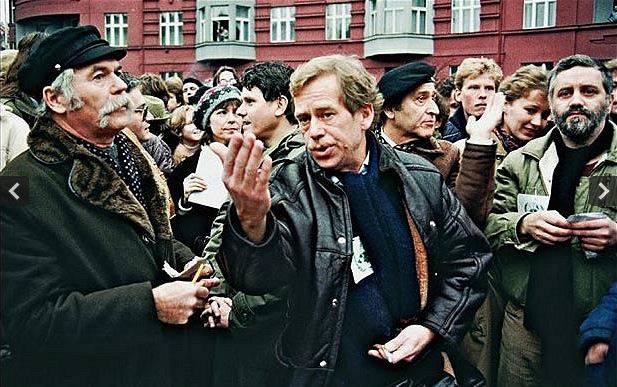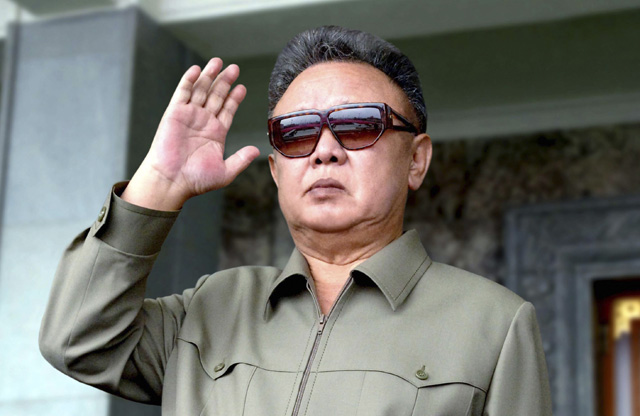Yesterday, December 18, 2011, representatives of the best and the worst of the 20th-century’s leaders died: Vaclav Havel and Kim Jong-il.
One was Vaclav Havel, former president of the Czech Republic and the man who, after several stints in Communist prisons, led Czechoslovakia’s revolt against the Soviet Union in 1989. The revolt is known as the “Velvet Revolution” because no shots were fired, and the transfer of power was completed in a matter of weeks. That peaceful revolution in Prague started a series of revolutions that led to the fall of the Berlin Wall and the Soviet Union.
President Obama said about Havel, “His peaceful resistance shook the foundations of an empire, exposed the emptiness of a repressive ideology and proved that moral leadership is more powerful than any weapon.”
This article from the New York Times is just one of many insightful articles on the heroic statesman.
Kim Jong-il, on the other hand, was the dictator of North Korea–an evil man, known for his ego, cruelty, and nuclear weapons. He effectively maintained North Korea’s isolation from the entire world. No small feat in the age of globalization. Unfortunately, the early consensus is that Kim Jong-il’s death will not lead to revolution or freedom for the people of North Korea. With Kim Jong-un expected to inherit the dictatorship from his father, things will likely stay the much the same.
Here is an article by the LA Times on his death. Our friends at LiNK (Liberty in North Korea) put out a press release to address early questions about what this means for North Korea. They include quotes from some recent refugees on Kim Jong-il’s death and the future of their country.
“I don’t care that Kim Jong-il is dead. In North Korea now, the norm dictates that everyone has to cry. But people don’t have any positive feelings towards Kim Jong-il. The majority of people will be faking their tears.”
– Nam Gum-sook, F, 19.
“I worry about what this will mean for my relatives back inside and for the North Korean people. I fear that the relatives of defectors will be persecuted more. They are closing the markets and there are bound to be a lot of staged political events, so for the people that are already struggling things are going to get even harder.”
– Park Yun-joo, F, 31.
“This is not a happy or a sad event for me. But it is a big moment. This will be a shocking moment for the North Korean people. But there will not be as much grief as when Kim Il-sung died. Of course, people will have to pretend to be sad, and people may get caught up in the atmosphere, but it is not true sadness.”
– Kim Moon-soo, M, 21.


Think people should hear about this?